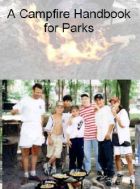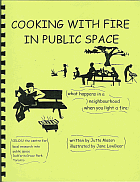

Pages in this Folder:

Related Folders:
See also Department Site Map
Support Provided by

Toronto Parks and Trees Foundation

This website has received support from celos.ca through the Trillium foundation.
Publications
Comments?
For the basics, see
- Website & Privacy Policies
- How To Get Involved
- The Role of the Park
Search options:
Department Site Map
Custodians:
Ana Bailao, interviewed by Jutta Mason, Sept.15 2010
Ana Bailao -The first thing we need is a change of attitude towards parks. I see Dufferin Grove Park as a big community centre without walls. This is not only a park where people come for a walk. Thereís so much activity and programs done here. This is a community centre, and thatís what we need to have in other parks in the area. We need our youth involved, we need our seniors involved, we need our artists involved...

We need programming in these parks. Not just a wading pool. This is a grass roots movement thatís going to help me tremendously to do a good job as a councillor, in the neighbourhood. I need groups that are organized, that know the community well, that I can rely on. The second thing is that, as you know, Parks and Rec barely has an inventory of whatís in our parks. Thatís a problem from amalgamation. As a councillor, I need to understand what programs are exactly going on in our parks. There are specific parks where thereís a lot of young families moving in -- what can we do to make sure we have more programs for children, in health promotion, arts....We need to make sure that these things are operational and thatís where the capital projects come in. We need to make sure that the city is more in touch with the users at the parks. Itís a change of attitude that we really need to mandate.
For me, I want to create a kind of a ward council where we have all the different groups meeting regularly and talking about al the different issues. We canít talk about everything in one meeting, so I would say, three or four.
Jutta Mason - This is the operating issues that Iím hoping to ask you about the next time we talk.
Ana Bailao -We need to make sure that these things are operational and thatís where the capital projects come in. We need to make sure that the city is more in touch with the users at the parks. Itís a change of attitude that we really need to mandate. For me, I want to create a kind of a ward council where we have all the different groups meeting regularly and talking about al the different issues. We canít talk about everything in one meeting, so I would say, three or four.
JM - Where would you have such meetings?
Ana Bailao - In community centres.
JM - Different ones, moving around?
Ana Bailao -Yes, I think itís very important to have them in different locations. And then every Saturday morning I would be available at the constituency office. People donít have to make an appointment if they have something on their mind. Pantalone is a great example of this. Heís been a councillor for thirty years, and every Saturday morning, there he was, from 10 to 12. People get used to it.
JM - How can you fit everybody in?
Ana Bailao - It might be a little crowded at the beginning. When I started knocking on doors in March, people were so anxious to talk about issues because they felt like they werenít being listened to. As soon as they got me at the door, I was spending like 15 minutes on their doorstep. So I can see that at the beginning I might be getting quite a lot of people. But eventually, by the end of the first year, second year, people will know that Iím there for them, and they wonít feel like, ďIíd better grab her because I donít know when is the next time that Iím going to have a chance to speak to my councillor.Ē I think itís important to have that kind of contact with the community.
JM - True. But Ward 18 has a lot of people.
Ana Bailao -49,000.
JM - So you want to do public meetings and the Saturday mornings. But there still may be a lot people who are frustrated but maybe donít have time to go to those.
Ana Bailao -Well, thereís different methods. I think we need to be conscious of our audience, We need to make the councillors available in different ways. There are methods online. Maybe you got a call from Rob Ford, about those town halls that he makes on the phone? You get a message on your phone that says, thereís a town hall going on, if you want to listen and participate, stay on the line. If you want to ask a question you press a number. So this is another example of something I can do. To be honest with you, I donít know how much it costs, this is something that I have to look into. But itís something thatís very good, because you can do it in one evening, you blast a whole bunch of phone numbers in the ward, and whoever wants to participate, has the opportunity.
JM - ''You mean itís like you make your own talk show, on the phone. When did he start doing that? ' '
Ana Bailao - One of his tele-town halls called my office two weeks ago. Itís very new. I thought, this is actually very good if youíre a councillor. If you want to do something like this on a particular issue, it makes it easier, if people donít want to do a public meeting at a location. But itís important that we have different ways Ė from e-newsletter to newsletters that are done on paper, that are multi-lingual as well. One thing that people complain about over and over in this area is the short time-notices that they receive. If thereís a public meeting on Thursday, they used to receive the notice, only in English, on Monday. This is a working-class community. We canít expect people to arrange for babysitting, to change their life to go to a meeting on Thursday. But there might be an issue thatís important to them, so we have to give people enough time. There have to be notices, and if there are things that are changing our neighbourhoods, that have an impact on peopleís lives, make sure that itís done multi-lingual. Making sure that weíre also targeting the youth. So use the social media, use the online tools, use the local community centres to have meetings.
JM - In a case like MacGregor Park, there may also be a cross-over between community people and the low-level, low-paid recreation staff who may have even started out as interested community members.
Ana Bailao -I think itís important that we rely on those front-line staff. These days thereís a strong belief in the city that things have to be run top-down. I feel like it has to be the opposite, it needs to be more bottom-up. We need to rely on the front staff and on the park users, the people who understand whatís needed, and then start planning.
JM - So are you saying that at MacGregor Park there ought to have been a better front-line, park user connection before the project began? But what about after a project gets started, and then things happen that need more supervision, like those dark screens on the windows?
Ana Bailao - Consultation at the beginning and then ongoing input. There might not be time to consult everybody as the project goes along, but for people who go to the park almost every day, you could you put up a notice, even tell them to contact the front line staff. The consultants, the staff downtown, theyíre not there, so they donít understand the park. Thatís why theyíre not concerned about the contractor making the building look bad with those awful screens. I also think that we need to have that inventory, so when capital, in the future, comes around Ė itís really important that I have this inventory ready, that I really understand what we need here in these parks. Then, when weíre working out the budget, when weíre working out the projects, I will understand that I need $20,000 for this park. And we need to push for that.
JM - I have to warn you Ė central inventories have been done for decades now, and theyíre a real crapshoot. Because again, itís the people going around with the clipboards. You can have a real difficulty if you do a lot of top-down inventories. Or maybe youíre thinking of something different?
Ana Bailao - Itís more of a priority list. And people that use the parks, and the front line staff, those are the ones who would understand what we need.
JM - So youíd say to the general manager, ďI want you to ask all your front-line staff, Parks mainte≠nance workers or Recreation program workers, what it is in their particular park that needs to be done.Ē
Ana Bailao -Yes.
JM -That would be very new, what youíre suggesting. Instead of hiring an engineering company to go around and tick off everything, you want people who work at the individual parks to make the list Ė is that what youíre saying?
Ana Bailao -Yes, and park users.
JM - You know that asking the views of the staff who work at the different locations is very radical. Theyíre supposed to be quiet. Parks and Rec is structured like an army, and if youĎre not a sergeant, you donít talk. Or you talk only through the sergeant.
Ana Bailao -Well, I guess theyíre going to have a problem with me, when I start coming around the parks and talk directly with everybody, including the staff who work there.
JM -I think the staff are instructed that they shouldnít be talking to you. They should be referring you, very politely, to their supervisor.
Ana Bailao - But I donít get that. I want to hear it directly, and if the staff get in trouble, let me know. I donít want to put any park staff in a difficult situation, but you know, they understand the community. Take Tino. It was such a big loss to have him taken out because he understood the community. We could rely on him. Anything we needed he was here for us, he knew the programs, he knew the commu≠nity, he knew the issues, he was a huge resource. They removed him from here without any consid≠eration for what was being done in this area. I think it was so short-sighted on their part. Tino was somebody who was in touch with everybody. For me itís a lack of understanding the community, that they would get rid of a resource like that.
JM - They put a really nice guy here, Dave Hains, but they took him away from another location where he had really good connections and projects he was working on. The thing is, thatís the general managerís explicit management style Ė apparently she wants to move people around frequently. What would your feeling be about that, as a councillor?
Ana Bailao -Why does she want to do that?
JM - I hear she says sheís trying to get staff to increase their expertise in many different things. So relationships donít count as much.
Ana Bailao -But relationships are an expertise -- understanding the community, the dynamics, the individuals that are involved in the community Ė thatís something thatís really important. You add value. I would ask her: ďso how do think youíre going to find the balance? I understand that you want people to be versatile, but how do you balance it with knowing the community, with making sure thereís stability for people, that they can have a relationship with that Parks and Rec person?ĒThatís a conversation Iím going to have with her.
JM - So, what if she says, ďthatís staffing, that has nothing to do with City CouncilĒ?
Ana Bailao -Well, itís through staffing that weíre delivering programs in the community, which has everything to do with Council. What happened here with Tino is a perfect example of the connection. And another thing Ė I think itís very important that we start having budget consultations with the community. I want to come to the community, and first of all, identify some of the priorities in Ward 18, and say, okay, this is the budget, this is how it works, and so what can we get for Ward 18? Shelley Carroll, the head of the budget committee, told me that last year, only two councillors took her up on her offer to have local budget meetings. I was shocked. Community information, community consultation, itís at the top of my list, just because Iím feeling thatís one of the main frustrations here in Ward 18. There are people that want to get more involved and they feel like the city is not accessible to them, they get the runaround. We need to change that. The B.I.A., for example. Do you know that they had to go through Freedom of Information to get a report because they couldnít get it through the councillorís office?
JM - Sometimes councillors had to go through Freedom of Information as well.
Ana Bailao -Yes. Rob Ford says some crazy things, but heís right on some things. When he talks about those 12,000 Mastercards that let staff spend $9.5 million and councillors have no idea who has these, and we have no idea what the spending is for.... The staff need to make sure that the councillors are informed, and involved. Itís very important that as a councillor you put your foot down and say, ďlisten. Itís my ward, make sure that everything that goes on in the park goes through my office as well.ĒThere are things that the city is going to do that we need to be on top of. Your councillor should be your voice. Thatís why weíre representatives.






 Printer friendly version
Printer friendly version